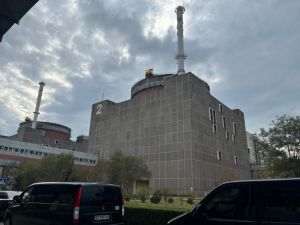Consumer prices have increased slightly (0.23%) in August, compared to July, and the annual inflation rate climbed to 7.58%, the highest level of the last two years, according to data from the National Statistics Institute (INS).
According to Mediafax, a higher inflation level was seen in August 2008, when prices saw an annual increase of 8.02%.
In august 2010, prices only climbed 0.23% compared to the previous month, far below July"s advance, when the raise of the VAT from 19% to 24% caused prices to increase 2.58%, in particular for cigarettes, fruit and vegetables and railway tickets.
The increase in prices in the month of August was mostly caused by the rise in the price of food products (0.38%) and of services (0.41%). The prices of food merchandises have remained essentially unchanged, posting only a slight increase (0.04%).
In August, several food products saw their prices increase by more than 1% compared to the month of July: vegetables and canned vegetables (1.95%), citrus and southern fruit (1.7%) and eggs (1.3%).
Conversely, the prices of fresh fruit dropped 1.27%.
In the services segment, prices for water, sewer and sanitation, increased 2.51%, whereas prices for urban transportation increased 1.2%. Prices for non-food goods saw insignificant increases, of up to 1%.
In August, the average price increase over the past 12 months, (September 2009 - August 2010) compared to the previous 12 months (September 2008 - August 2009), as determined based on the Consumer Price Index, as well as on the Harmonized Consumer Price Index (IAPC) was 5%.
The Romanian National Bank (BNR) revised the inflation forecast for 2011, from 2.8% to 3.1%, after raising its estimate for this year from 3.7% to 7.8%, as a result of the hike of the VAT.
According to Mediafax, in the final version of the letter of intent for the IMF, the Government estimates that inflation will reach 7-8% at the end of the year.
At the end of June, the Government decided to raise the VAT from 19% to 24%, after the Constitutional Court rejected the pension reduction by 15%.
The inflation rate is one of the targets set as part of the EUR 20 billion foreign financing agreement that Romania signed with the IMF, as well as one of the criteria that our country needs to fulfill in order to access the Eurozone.


















































